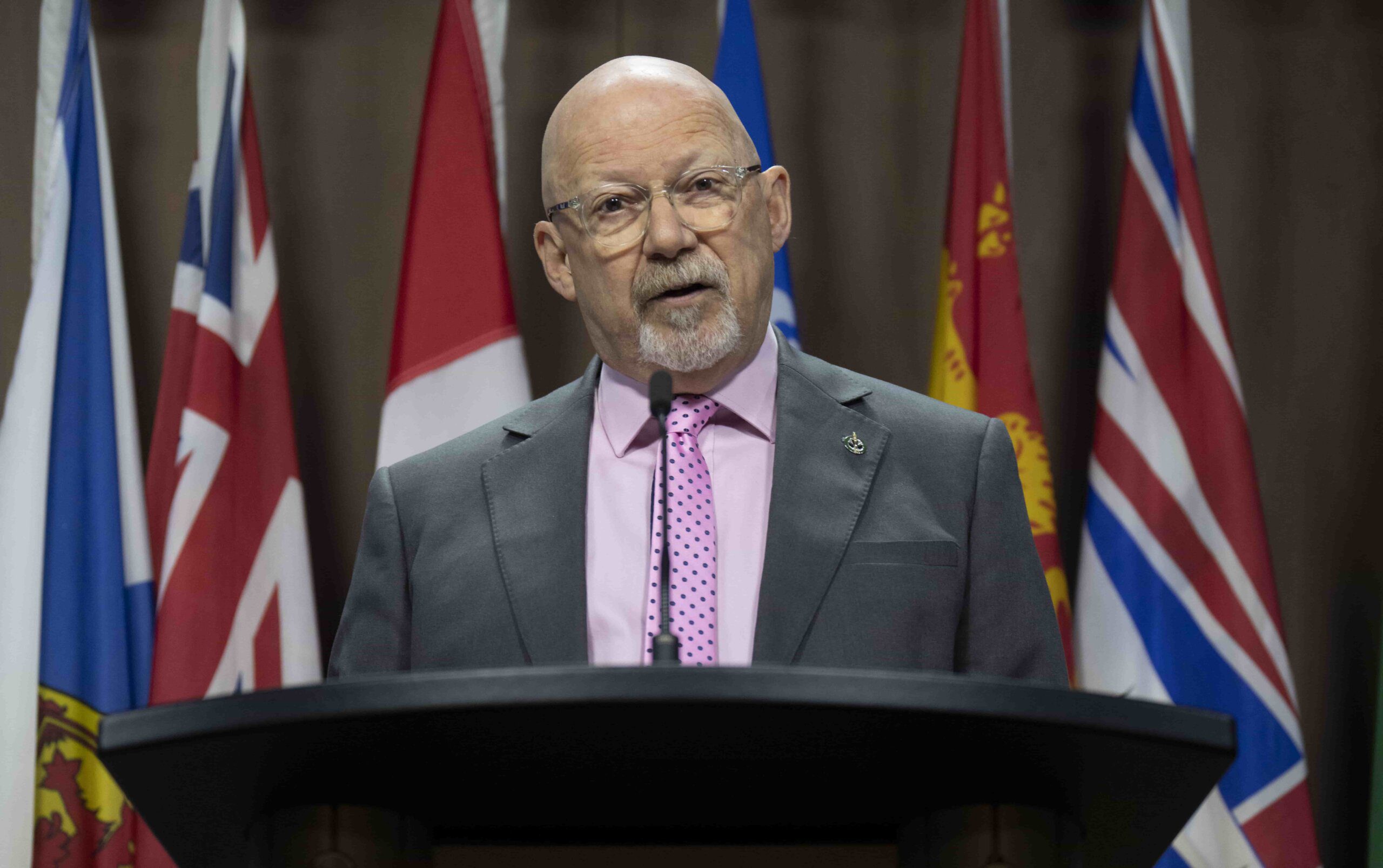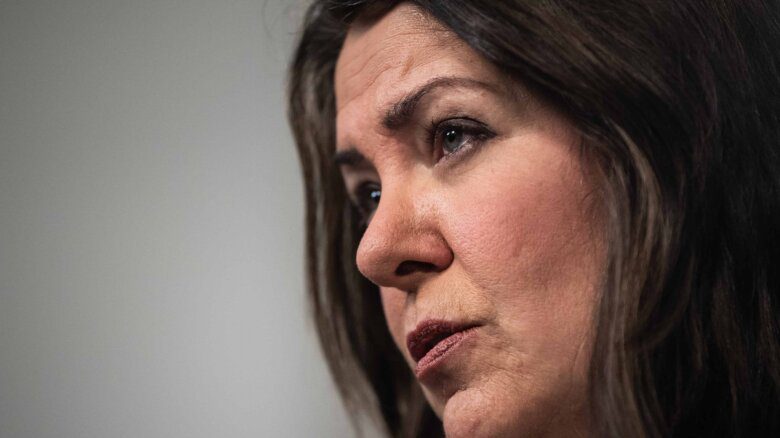NDP MP Randall Garrison’s White Paper on the Status of Trans and Gender Diverse People was tabled in Parliament on June 19, days before its summer break. It’s a reasonably solid look at things that the federal government can and should be doing to protect the health and safety of trans and gender-diverse Canadians in the face of the rising tide of hate and violence being directed toward them and the queer communities in general.
In prefacing the release of his report, Garrison pointed out to the media that trans and gender-diverse Canadians are three to four times more likely to be the victims of violence, and that they continue to struggle for acceptance in public, at school, at work and often in their own families. He also pointed to what is happening in New Brunswick around Policy 713 and rolling back the protections of these students in public schools, and the attack on a nine-year-old girl at a school track meet in Kelowna, B.C., where an adult in the audience accused her of being trans because she had short hair.
“These recommendations set out a path to fulfilling that promise of equality and safety that we still owe to our fellow Canadians,” Garrison said in his remarks. “I believe that the recommendations set out in this report are not only reasonable and doable, but also in today’s climate, they are urgently necessary.”
Even getting the report tabled was not as easy as it should have been. In spite of consulting all of the parties before tabling it, Garrison was denied permission to do so by the Conservatives, making it necessary for justice minister David Lametti to table it on Garrison’s behalf.
“Randall and his team have worked hard to address ways in which we can support the trans community—especially pertinent during a time when we are seeing rising hate against the 2SLGBTQI+ community,” Lametti later said in an emailed response to Xtra. “I am grateful for the recommendations they have provided, and will be reviewing them closely.”
Garrison largely credits his principal researcher, Dylana Thompson, a trans woman who has been on his staff since January, for the work of the report. Garrison also says that he’s not speaking for the trans community, but is reflecting the concerns he and Thompson heard. Garrison noted that who was consulted was not listed as part of the report because of the current climate where they didn’t want the participants to be exposed to harassment, but gave assurances that consultation was comprehensive, coast to coast and included a review of professional literature in the area.
“These are rooted in the community,” Garrison says of the recommendations. “These are not what I think should happen, these are what we were told by trans and gender-diverse Canadians need to happen and need to happen now.”
The report makes 29 recommendations, covering the topics of gender-affirming healthcare, hate and violence, identity documents, refugees, employment equity, sports, blood- and organ-donation policies, prisoners’ rights, sex work and HIV decriminalization. Some of the recommendations are fairly concrete, while some venture a little into hand-wavey territory, particularly when it comes to healthcare, because that is largely a provincial responsibility.
“The report focuses on the federal government, both in the necessity of leadership and the areas where federal jurisdiction is paramount,” Garrison says. “For instance, in the area of comprehensive gender-affirming healthcare, one of the recommendations calls for the federal government to establish best practices and to work with provinces and territories to ensure that gender-affirming healthcare is available across the country.”
Unfortunately, “best practices” can be fairly nebulous in getting provinces to agree to much, and while the report calls on the federal government to cover gender-affirming care for groups it is responsible for such as refugees, First Nations and Inuit, I was surprised that it didn’t call for the implementation of national pharmacare to ensure that hormones for trans people are covered—though again, that would be subject to negotiations with provinces on the national formulary, if any of the nine provinces who still haven’t signed on to the plan ever do.
I also notice that Recommendation 8 was around amending section 268(3) of the Criminal Code to restrict cosmetic surgeries on intersex children until they are old enough to consent. With the launch of the 2SLGBTQI+ Action Plan nearly a year ago, the government had promised consultations regarding this issue, but Lametti’s office says that no consultations have been launched to date.
“We are aware of concerns raised by advocates and experts as it relates to surgeries performed on intersex children, and will continue to follow this matter closely,” Lametti’s spokesperson, Diana Ebadi, told Xtra in an emailed response.
The section on employment equity was oddly partisan, explicitly referencing NDP policy, which was out of step with the rest of the report. I have some remaining skepticism about the recommendation that “self-attestation” be the sole requirement for changing federal identity documents, particularly as it relates to other recommendations such as changing restrictions around access to testosterone (which is a controlled substance because of its use as a steroid). While bridging that gap is not impossible, I worry that the recommendations gloss over some of the nuanced conversations that need to be had.
Two of the other recommendations stood out for me because of previous government promises, such as the aforementioned promise to consult around intersex surgeries.
Recommendation 27 is to fully decriminalize sex work and to repeal the Harper-era legislation Protection of Communities and Exploited Persons Act, which put in place the so-called “Nordic model” of criminalizing the buyers of sex. It also called for the removal of provisions of immigration regulations that prohibit sex work.
Reforming sex work laws had been an early promise from the Liberal government that has yet to come to pass. Lametti’s office points to the government’s response to the Commons’ justice committee’s report reviewing the Act, which states that the government is continuing its study of the legal framework and its impact.
“Our government is concerned about the safety of all people engaged in sex work, and we are committed to taking into account the interests of all impacted groups,” Ebadi said. “We continue to look at the impact of these reforms closely, including relevant Canadian case law and research.”
As well, Recommendation 29 was to remove HIV non-disclosure from the Criminal Code entirely, which the Department of Justice has been pursuing. A What We Heard report on HIV-disclosure public consultation was published in June of this year, and Lametti has been working with health minister Jean-Yves Duclos and other stakeholders on the matter. Lametti’s office says he will be “taking the time to review this report. His priority is reducing the stigma associated with HIV, and making sure we have a justice system that is fair and keeps people safe.”
Garrison acknowledges that there is progress being made on this and other queer issues.
“There are some signs of progress with this government on this, including the first step for a path to safety for queer refugees, and some encouraging funding announcements for some trans organizations to help make trans voices better heard in Canada,” Garrison says.
Nevertheless, as some of the responses from Lametti’s office shows, there are still places where the government needs to be pushed to live up to its promises, and hopefully the positive response to this White Paper can be one more necessary push.


 Why you can trust Xtra
Why you can trust Xtra


